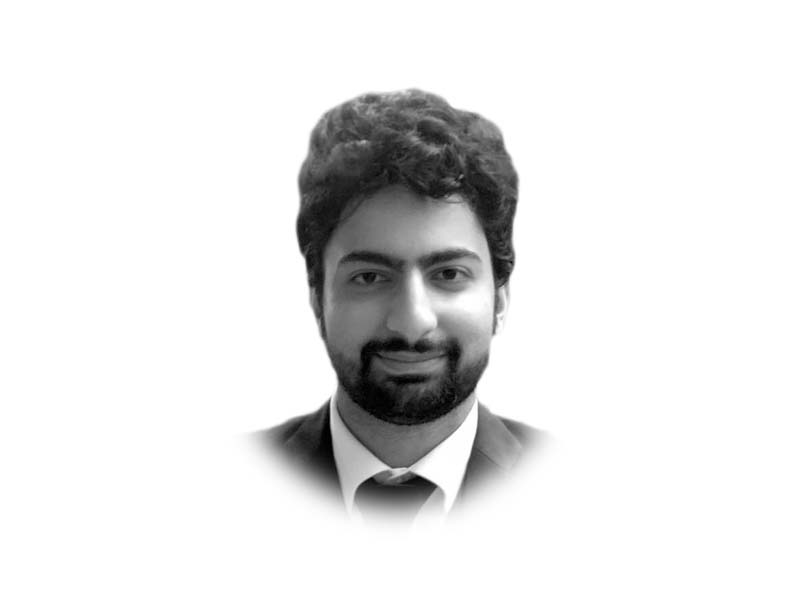
It finally happened.
After 22 years of struggle Imran Khan has decisively reached the summit of Pakistan’s political mountain. The story of his struggle will no doubt be written down in many books on the history of Pakistan’s democracy: the playboy who rose to lead a country of more than 200 million people. Whoever is up there writing Khan’s story is weaving quite a tale. The PTI and its leadership deserves genuine commendation for its accomplishment.
But that story — the story of winning the cricket World Cup, building two cancer hospitals and a prestigious university in Southern Punjab — must now lie in the past. Ever since Khan started his political career, he has been a man constantly reminding us of his numerous accomplishments in the past. Now, however, Khan will be remembered in history for what happens in the future: in the next five years. This fact should be at the forefront of the PTI’s mind. Posterity will have no room to accommodate the rhetoric of the time before the 2018 elections if Khan does not fulfil his promises now that he is elected. How his time in office will be remembered depends on many things, I just want to point out some that he should keep in mind.
If it wants to get anything of substance done in the next five years, the PTI should begin by making sure it does not aggravate existing hostility with its political opponents. Khan seemed to be aware of this when delivering his victory speech. Not just because it will make his life easier in the National Assembly, but also, because the PTI does not control the Senate. Any legislation that it wishes to pass at the federal level will require Senate approval. It is neither in the interest of Khan or the nation for a war of attrition to occur between the upper and lower houses of parliament. We have rarely seen Khan’s diplomatic side — most of the time his stance is all or nothing — but that side must spearhead his overall demeanour now that he has been given the monumental task of running a nation.
The PTI also has the chance to end this ludicrous cycle of parties crying foul at the end of every election. Khan needs to place the legitimacy of our democracy over political rivalry and take allegations being levelled by other political parties regarding these elections seriously. Most of the allegations seem to point to incompetence within the ECP, so the PTI should work alongside other parties to investigate claims of delays in issuing Forms 45; the failure of the ECP’s Results Transmission System; and, polling agents being refused entry into polling stations. Facilitating investigation into these claims for other parties will strengthen not only our democratic process but also the legitimacy of Khan’s own victory.
The 2018 elections have shown that Pakistan can make democracy work, but Khan has the opportunity to make Pakistan a true liberal democracy rather than an illiberal one. This demands that Khan abandon and reform certain views that liberals are quick to point out when claiming that he will tilt Pakistan to the extreme right of the political spectrum. His stance against the women’s protection act; his support for the blasphemy law; his views on the role of women; his funding of madrassahs — all have to be reformed. Pakistan should begin the struggle towards offering greater protections for vulnerable groups within its borders, otherwise it will only be a democracy according to the most simplistic definition. The PTI can change that — it must work to make Pakistan a more liberal democracy.
Perhaps the biggest challenge that the PTI must seek to resolve is the perpetual war between the three main institutions of state: the judiciary, the legislature and the executive. Each seems to be at each other’s throat with a legion of fanatic supporters behind them. No democratic state can get much done in such a scenario. How Khan goes about addressing issues such as the surge in judicial activism, Pakistan’s civil-military imbalance, federalism and the separation of powers may eventually define his legacy.
Finally, Khan has to empower local governments. The actual people who should be responsible for fixing roads and sewerage systems so that the members of our national and provincial assemblies can get on with running this state.
The winds of change are blowing across the country. Whether they will be remembered as a meek breeze or a fierce tempest lies solely in the hands of the PTI and its leaders.
Published in The Express Tribune, July 31st, 2018.
Like Opinion & Editorial on Facebook, follow @ETOpEd on Twitter to receive all updates on all our daily pieces.












COMMENTS (1)
Comments are moderated and generally will be posted if they are on-topic and not abusive.
For more information, please see our Comments FAQ